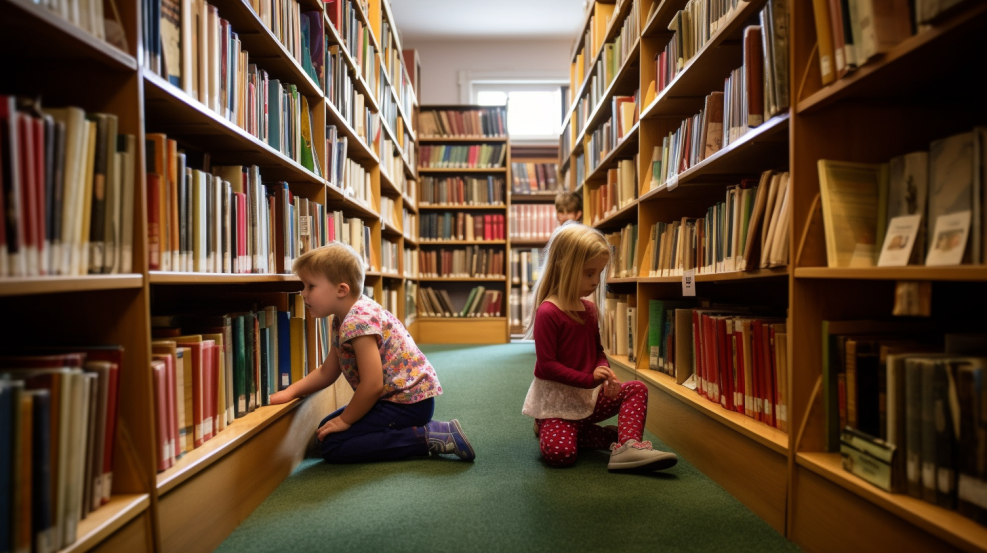Going to a library can have several positive effects on children’s mental health. Here are some ways in which visiting a library can contribute to their well-being:
- Reading and Cognitive Development: Libraries offer a wide range of books suitable for different age groups. Reading helps children develop language skills, expand their vocabulary, and enhance their cognitive abilities. Engaging with various genres and topics stimulates their imagination and critical thinking.
- Stress Reduction: Libraries provide a calm and quiet environment that can serve as a refuge from the often busy and noisy outside world. This peaceful atmosphere can help reduce stress and anxiety in children, allowing them to relax and focus.
- Imagination and Creativity: Exposure to diverse stories, characters, and worlds through books encourages children to use their imagination and creativity. This can be a healthy outlet for self-expression and problem-solving.
- Social Interaction: Libraries often host events such as storytelling sessions, book clubs, and workshops. Participating in these activities gives children the opportunity to interact with their peers, make new friends, and develop social skills.
- Self-Esteem: Accomplishing reading goals, understanding complex stories, and discovering new interests in a library setting can boost a child’s self-esteem. It gives them a sense of achievement and confidence in their abilities.
- Stimulating Curiosity: Libraries are treasure troves of knowledge on a wide array of subjects. Browsing books on different topics can spark children’s curiosity and encourage them to explore new areas of interest, fostering a lifelong love of learning.
- Time Management: Planning library visits and managing time to read books encourages children to develop organizational and time management skills, which are important for their overall well-being.
- Escape and Coping Mechanism: Reading can serve as a healthy escape from everyday challenges. Children can find solace in the stories they read and relate to characters who overcome difficulties, providing them with valuable coping mechanisms.
- Educational Support: Libraries often provide resources such as homework help, educational games, and research materials. These resources can support children’s academic growth and reduce academic stress.
- Family Bonding: Visiting the library as a family can be a positive bonding experience. Parents and caregivers reading with children can enhance their emotional connection and communication, fostering a supportive environment.
- Mindfulness and Focus: Reading requires concentration and focus, which can promote mindfulness. Engaging with a book’s content can help children stay present and fully immersed in the reading experience.
- Emotional Development: Books often deal with complex emotions and moral dilemmas. Reading these stories can help children develop empathy, understand different perspectives, and navigate their own emotions.
Incorporating library visits into a child’s routine can provide them with a wealth of mental and emotional benefits, promoting their overall well-being and personal growth.
In an era where stressors can weigh heavily on young minds, the library serves as a sanctuary, a retreat into a world of calm contemplation. The act of reading itself becomes a form of mindfulness, fostering focus and presence. The stories they encounter become friends, mentors, and a means of understanding themselves and others. Library visits empower children, cultivating self-esteem through reading accomplishments and exposing them to a diverse array of stories and characters. As they interact with peers in library events, they learn the art of communication and the value of community, nurturing skills that will serve them throughout life.
Moreover, library visits offer families a chance to bond over shared stories, promoting open dialogue and emotional connection. The library becomes a shared experience, a source of precious memories that families can treasure.

